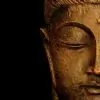There is a problem when the Indian Muslims forget the history of their forefathers and how they converted due to torture.
Not entirely true. We mostly think of conversion through torture because several important leaders like Guru Tej Bahadur were apparently tortured for not accepting Islam. First of all there are many conflicting accounts of the events. For instance the story of Prithviraj defeating Ghauri 17 times or heroically killing him in a duel after being tortured and blinded for not accepting Islam is most probably a myth.
For the general population there were mixed reasons for conversion. Some converted for higher position or a safer lively hood. Many others converted to free themselves of the yoke of caste that their native religion had imposed upon them for millenniums. Often in the course of history the downtrodden and oppressed classes have seen foreign invaders as liberators and not as tyrants. They don't share the exact passion for their indigenous religion or nationalism because their indigenous cultures and beliefs have never served them well. Why do you expect them to be outraged at the destruction of the temples - the same temples that were symbols of their misery? The same temples that denied them entry? The same temples whose wells supposedly got contaminated if their shadows fell on them? If anything they would be glad that these temples were razed and their oppressors had been unseated from their position.
The upper-castes or privileged sections see advent of foreigners as an assault on their religion, nation and traditions and norms, but for the traditionally oppressed pariahs the same situation is an opportunity for freedom.
Likewise, the British did not see dalits with the same disgust as a Brahmin or a Kshatriya would. Even the most racist British man would perhaps hate all Indians equally. And that is precisely why the dalit leaders were not quite enthusiastic about British withdrawal in the same way upper caste Hindus were. The same was the position of many intellectuals and social reformers who believed that immediate withdrawal of the British would throw India into a cultural abyss. They could count upon British sense of fair play but not upon that of ruling class Hindus in an independent India. You see, the world is not divided between patriots and traitors. Its much more complex than that.
The British East India Company was a private company and no, the owner was not the British Queen. But do our history books ever tell us this simple fact?
Yes they do. Its a well known fact that British east India company was a consortium of capitalists that obtained permission from various kings to set up their factories in India. The British queen assumed the title of the Empress of India only after 1857 revolt.




























